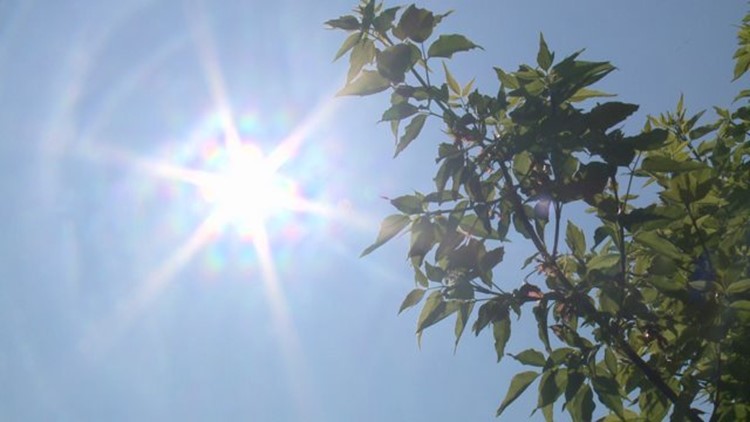NEW HAVEN — Air Quality Alerts are about to get a lot more common.
An Air Quality Alert is issued by the state Department of Energy and Environmental Protection on days when air pollutants are expected to exceed health standards. This has long been a practice that helps people know if it’s safe to do strenuous activities outdoors, especially those with asthma or other respiratory issues and the elderly.
However, this year the federal Environmental Protection Agency made the standard even lower based on recent health studies. That means there’s a lower threshold for DEEP to issue an alert.
In the summer months, most alerts are due to high ozone days, when pollutants from smoke stacks and car exhausts react with sunlight and heat to form the ground-level ozone. Therefore, weather conditions like temperature and winds have a huge impact.
In the past, alerts were issued on days usually in the upper-80s or warmer. Now, that threshold has gone down to the low-80s.
There are three alert levels, though we rarely, if ever, see the top one in Connecticut. The middle alert means that everyone–not just those with pulmonary issues–should avoid strenuous activities outside.
As for the air quality issues in general, much of the pollution causing us to have AQAs comes from other states–as much as 90 percent travels in the jetstream to Connecticut from the I-95 corridor, New York, Pennsylvania, Maryland, New Jersey, and even as far away as Ohio and West Virginia.
That is why winds have so much impact on the air quality. When winds are moving in a southwesterly or westerly direction–coming from New York City and other populated areas–the ozone levels increase and we are more likely to have an AQA. However, even if it’s warm out, if the wind is coming from northerly and easterly directions then there may not be air quality issues because that air is cleaner, coming directly from the ocean or north of us from Maine, Vermont and New Hampshire.
Wednesday was the first day so far this year to have an AQA issued, and FOX 61 meteorologist Sam Sampieri, who also works with DEEP as part of the team that issues the alerts, predicts that we’ll see at least three more AQAs before this hot stretch is over (Thursday, Friday and Saturday). The air quality issues could possibly last longer, but it all depends on a front that’s causing some forecasting issues in terms of temperatures and precipitation.
Stay with FOX 61 for the latest forecast.



